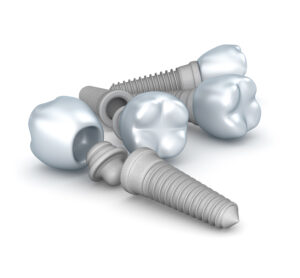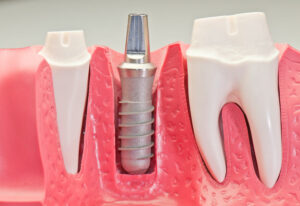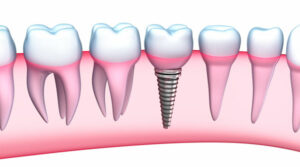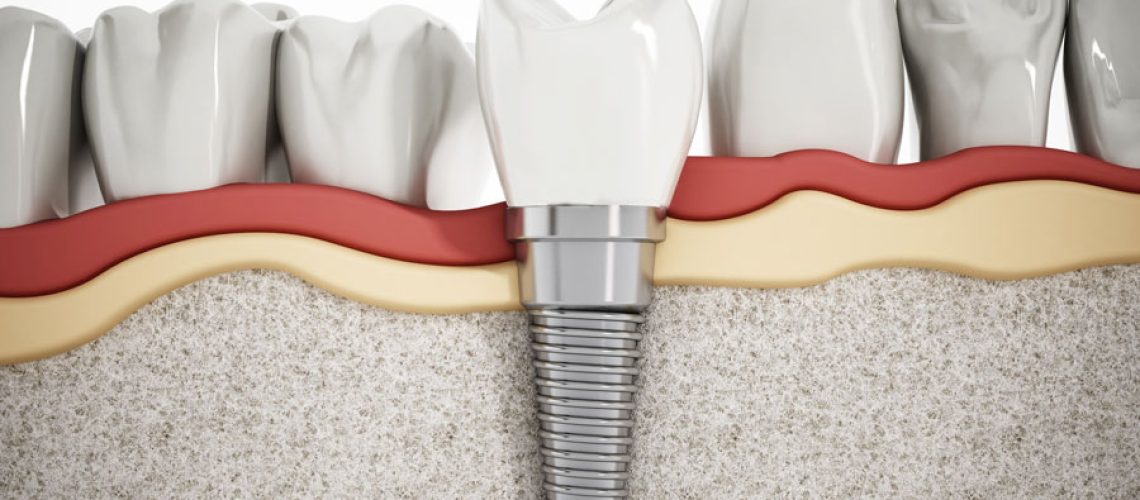Dental implants are built to last a long time. With proper care, most Mesa dental implants can last for decades. However, there are a few things that can shorten the lifespan of your implant, such as smoking or not cleaning your teeth well.
If you take good care of your implant and see your dentist regularly, you can expect it to last for 25 years or more.
However, there are a few things that can cause them to fail sooner.
Some of the Most Common Reasons Why Dental Implants Fail

- Not cleaning your teeth well: It’s important to brush and floss your teeth regularly, even if you have dental implants. Plaque and tartar can build up around the implant, causing inflammation and infection.
- Smoking: Smoking is one of the worst things you can do for your implants (and your overall health). It increases your risk of gum disease and implant failure.
- Grinding your teeth: Clenching or grinding your teeth can put too much pressure on the implant, which can cause it to loosen or fail.
- Diseases: Some diseases, such as diabetes, can make it harder for your body to heal. This can increase your risk of implant failure.
These are just a few of the most common reasons why dental implants might not last. If you take good care of your implants with proper dental hygiene and see your Mesa dentist regularly, you can help increase their lifespan.
Traditional Titanium Implants Vs. Zirconium Implants

If you’re considering dental implants, you may be wondering about the different types of implants available.
Titanium is the most common type of implant, but zirconium implants are becoming more popular.
So, what’s the difference between these two types of implants?
Titanium Implants
Titanium is a strong, durable metal that has been used in dental implants for many years. Titanium implants are the most common type of implant, and they have a very high success rate.
Zirconium Implants
Zirconium is a newer type of implant that is made from a white, ceramic material. Zirconium implants are becoming more popular because they are less likely to cause an allergic reaction and they look more like natural teeth.
Beyond that, zirconium implants are just as strong as titanium implants, meaning they are:
- Just as durable and long-lasting
- More biocompatible
- More natural looking
So, which type of implant is right for you?
The decision between titanium and zirconium implants should be made by you and your dentist. Your dentist will take into account your medical history, the condition of your teeth and gums, and your aesthetic goals to determine which type of implant is best for you.
How Dental Implants Are Installed

One of the biggest factors that leads to the longevity of dental implants is the ability of your gums and jawbone to grow around and secure them in place. This process, called osseointegration, begins when the implants are first installed.
During implant surgery, your dentist will make incisions in your gums to expose your jawbone. They will then place the implants into your jawbone and close up the incisions with stitches.
As you heal from surgery, your gums will grow around the implants and your jawbone will begin to fuse to the titanium posts. Once osseointegration is complete, your implants will be securely in place and you can start using them to support dental crowns, bridges or dentures.
Learn more about the dental implant process.
How Long Does Osseointegration Take?
Osseointegration is a process that takes time to happen. It can take anywhere from a few to several months for the fusion between your jawbone and the titanium posts to be complete.
Once osseointegration is complete, your implants will be as strong as natural teeth roots. They will be able to support dental restoration without any issue and should last for many years to come.
What Are the Potential Complications of Dental Implants?

Dental implants are a very safe and effective way to replace missing teeth. However, as with any type of surgery, there are some risks and complications associated with the procedure.
The most common complication is infection at the implant site. This can usually be treated with antibiotics.
Other potential complications include:
- Damage to the nerves or blood vessels around the implant site
- Sinus problems (if the implants are placed in the upper jaw)
- Implant failure (the implant does not fuse with the bone)
- Allergic reaction to the materials used in the implant
As you can see, most of the potential complications are rare and can be treated. Overall, dental implants are a very safe and effective way to replace missing teeth.
If you are considering dental implants, be sure to talk to your dentist about all of the risks and complications involved. You should be sure that you are healthy enough for surgery and that you are aware of all the possible risks before proceeding.

